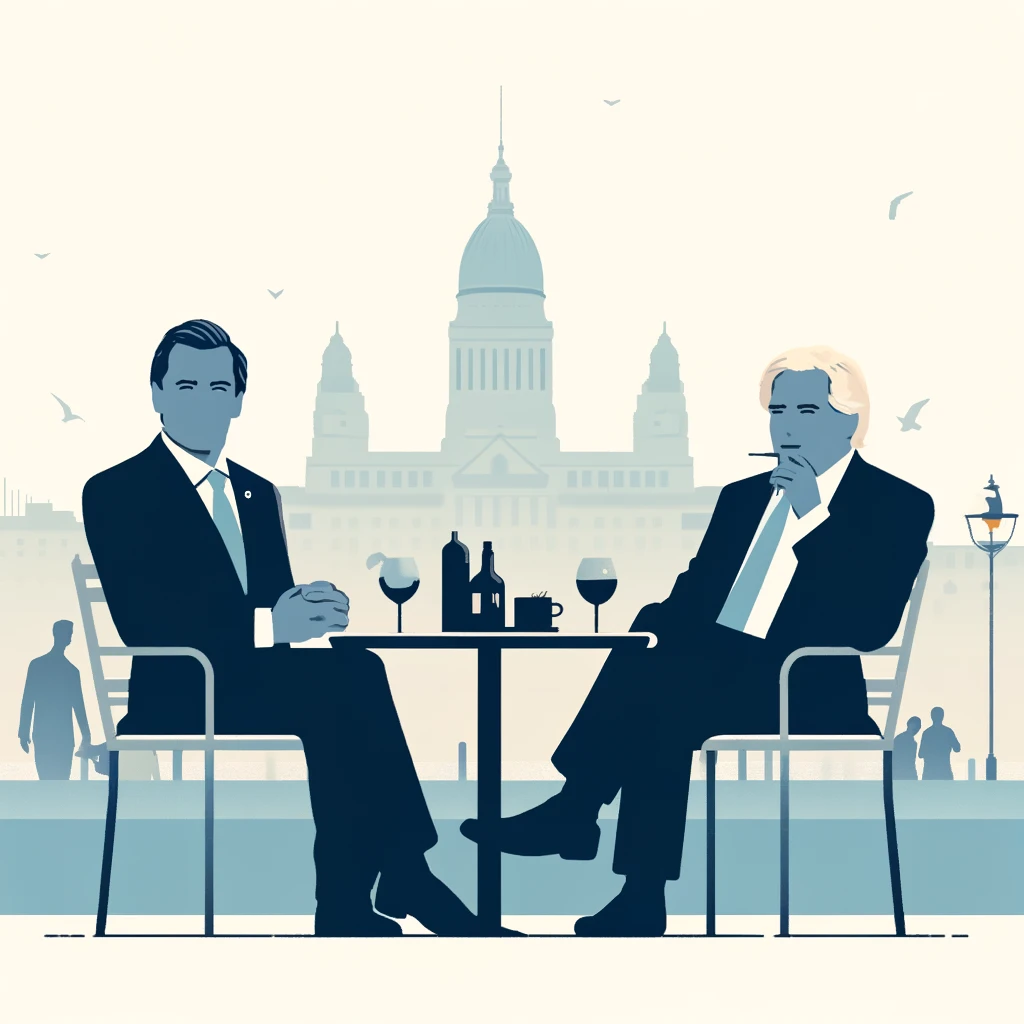Argentina’s economic woes intensify as inflation hits record highs, pushing tourists and dollars away. Amidst this financial turmoil, President Javier Milei finds time for a little date with Elon Musk in Texas.
Argentina’s allure as a budget-friendly destination is fading fast. Tourists, who last year injected $3.2 billion into the economy, are now turning elsewhere due to surging costs. The country, once bustling with foreign visitors leveraging its low cost of living, sees a reverse trend.
Foreigners are no longer flocking by air, land, and sea as before, deterred by the financial instability and escalating prices. Meanwhile, Argentines, struggling under a consumer spending crunch, are increasingly crossing into Chile to escape the economic hardship at home. The situation is dire, with inflation soaring from 104% to a staggering 288% since March last year.
Drastic Economic Shifts Under Milei
Since taking office in December, President Milei’s policies have significantly impacted Argentina’s economy. He initiated a drastic 54% devaluation of the currency, aligning the official and parallel exchange rates closer than ever before.
This move, though aimed at economic stabilization, has made Argentina less appealing to foreign visitors looking for a bargain. Gonzalo Rodriguez, who manages Carrasco Viajes in Montevideo, reports a 50% drop in travel bookings from Uruguay compared to last year, attributing it to these financial adjustments.
The decline in foreign interest is also evident in consumer behavior. Argentina, a hotspot for digital nomads and tourists from neighboring countries, now sees its supermarkets impose limits after being overwhelmed by shoppers.
The scenario has shifted dramatically since Milei abolished price controls, leading to significant price hikes in U.S. dollar terms. A study from Uruguay’s Catholic University indicates that a basket of 60 basic goods in Concordia is now only 33% cheaper than in Uruguay’s Salto, a huge decrease from 64% less just months ago. Less foreign spending could potentially widen a tourism deficit, which already exceeded $1.2 billion last year, a concerning trend for an economy in dire need of every dollar it can retain.
Tour operators like Laura Leiza, CEO of Cisplatina Turismo, note a 20% decline in trips to Buenos Aires, hinting at competitive pressures from other South American destinations like Brazil with its appealing weather and beaches. Despite still being relatively cheaper, Argentina’s rising costs are making it a less attractive option for short getaways.
Milei’s Meeting with Musk: A Blend of Politics and Business
So, Javier Milei and Elon Musk’s date last Friday in Austin was a social and political event. It was hosted at Tesla’s factory, and was apparently all about a strategic discussion on market liberalization and reducing bureaucratic hurdles, aimed at fostering investments, particularly in Argentina’s lithium sector—a critical component for electric vehicles.
Gerardo Werthein, Argentina’s ambassador to the U.S., who third-wheeled the date, shared that the discussion also covered potential Tesla investments in Argentina, tapping into one of the world’s largest lithium reserves. Milei, a staunch libertarian, has actively sought alliances with global right-wing figures and business tycoons to attract foreign investments and support his economic policies.
Milei’s interaction with Musk is part of a broader engagement with international leaders and influencers. He has positioned himself as a defender of free market policies on various global platforms, aligning with figures like former U.S. President Donald Trump and Brazil’s Jair Bolsonaro. His administration celebrates these connections as victories for Argentina, hoping to draw attention and investment to the country.
Milei’s active presence on social media platforms, especially Musk’s X, shows his commitment to these ideals. He recently expressed support for Israel alongside Musk and highlighted ongoing collaborations, including dealing with regulatory challenges faced by X in Brazil.





